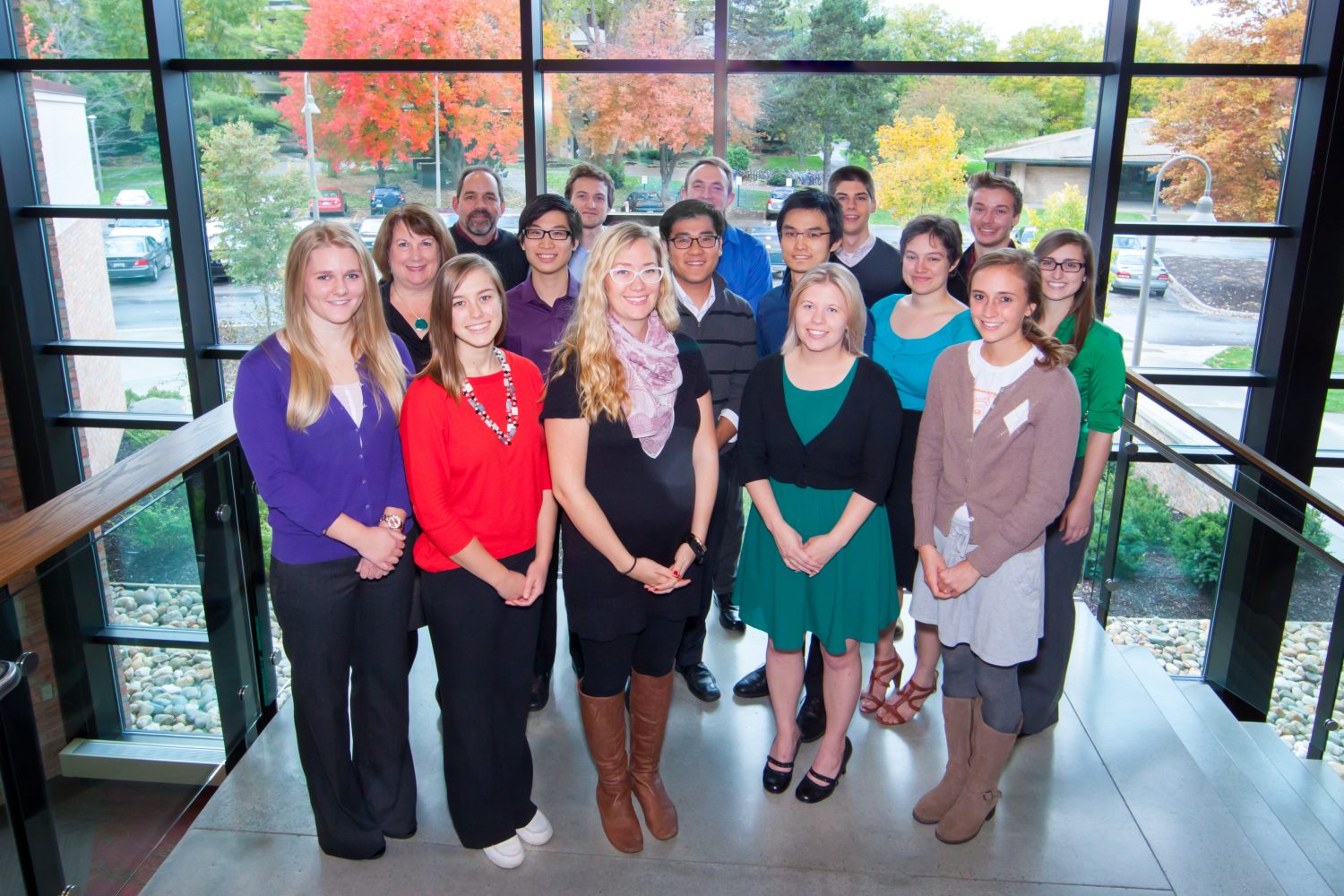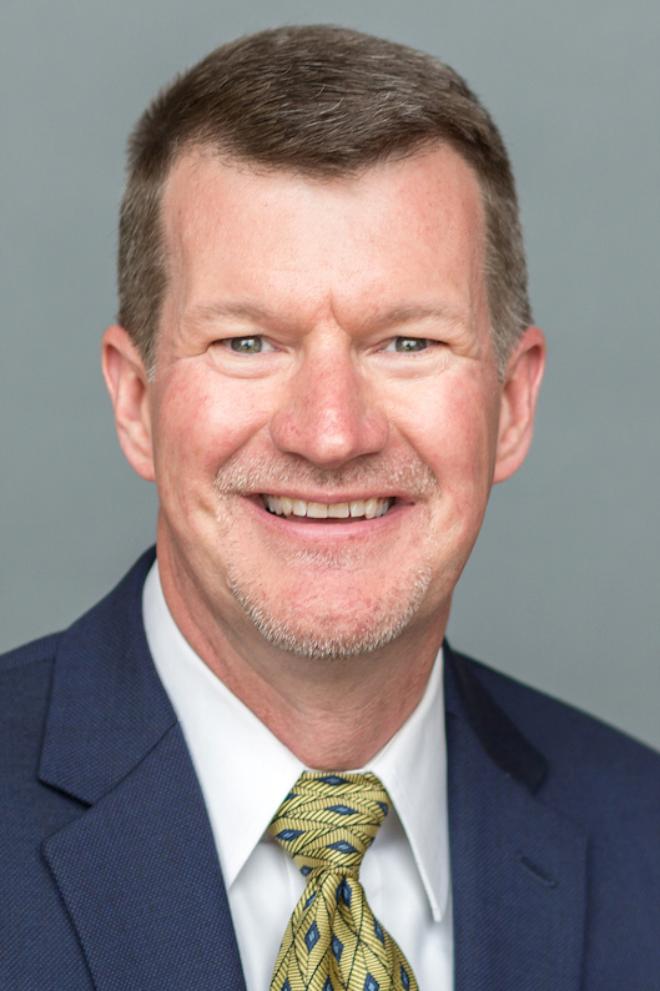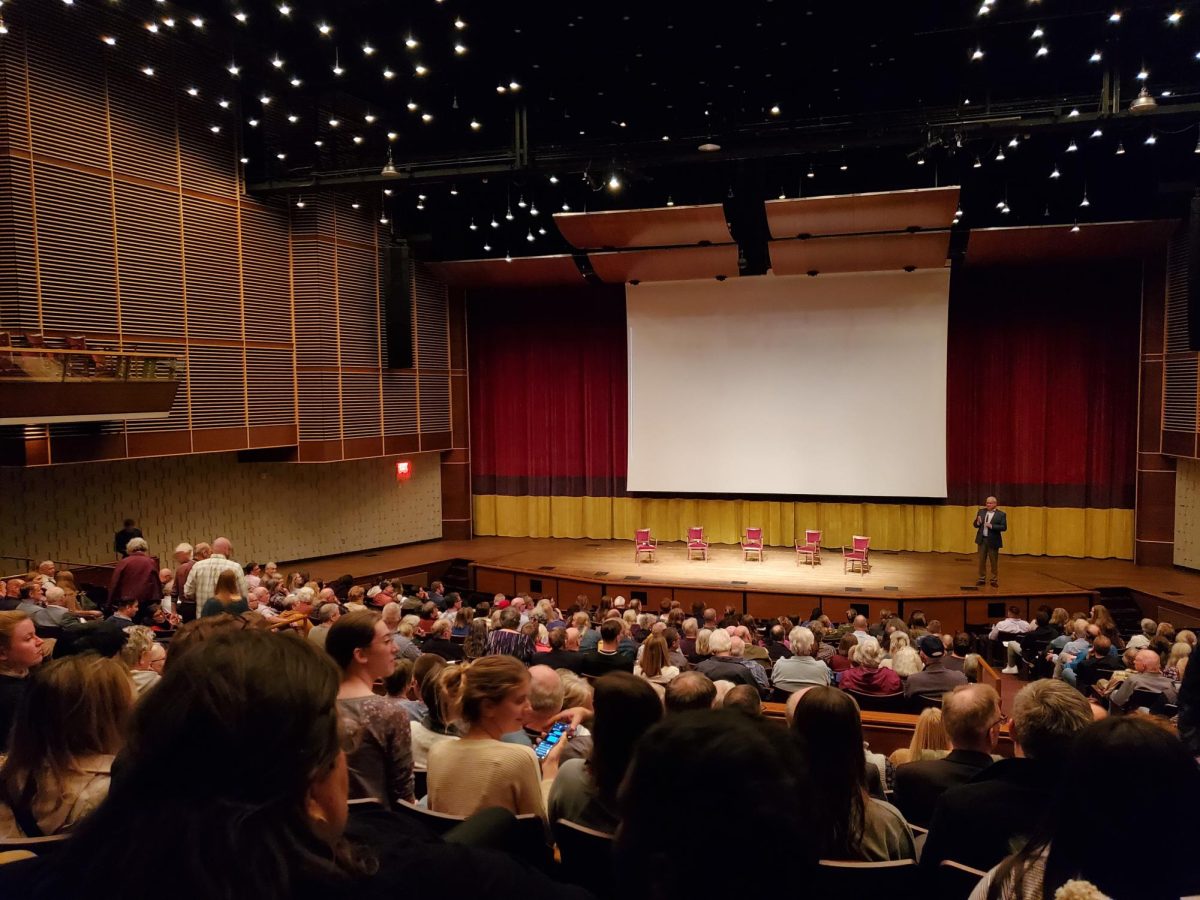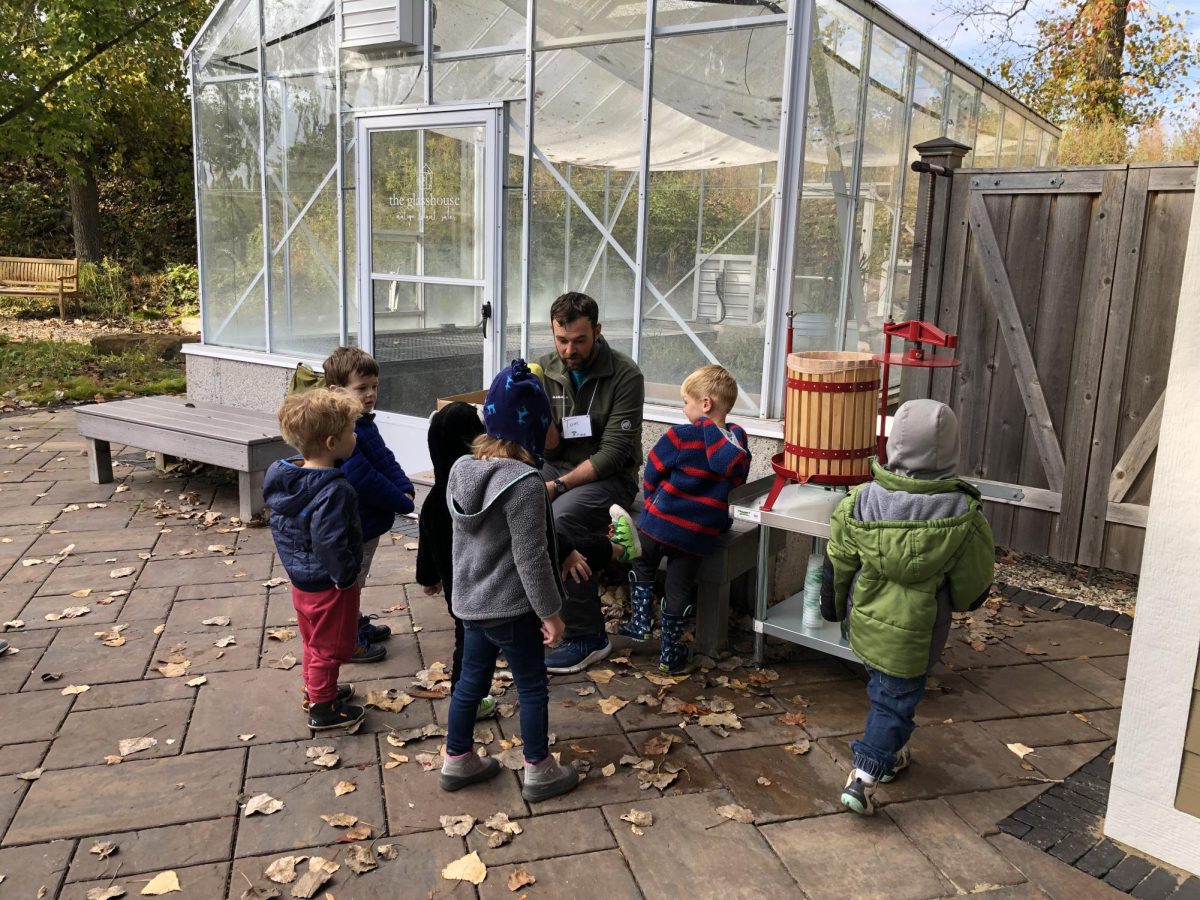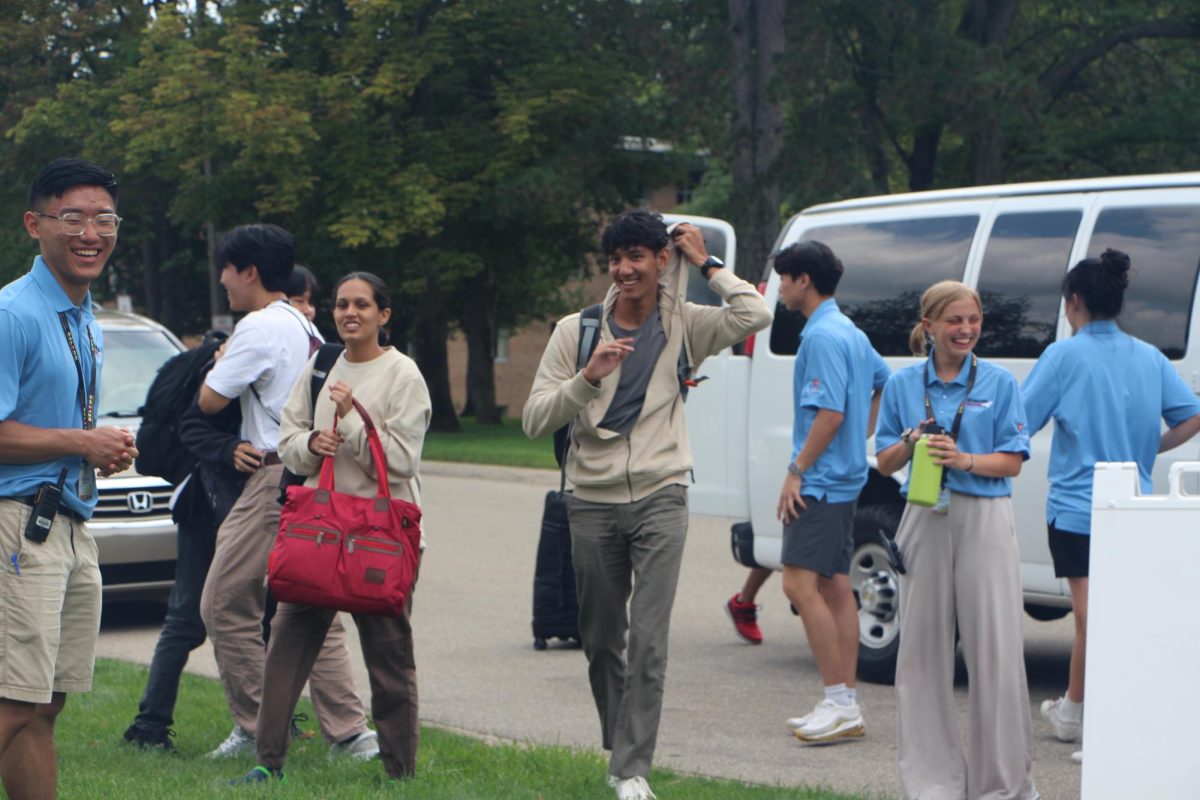Located in 2041 Raybrook, Calvin College’s Center for Social Research (CSR) works to conduct social-scientific research on behalf of Calvin faculty, the Christian Reformed Church and a wide array of local, national and international organizations.
A History of the CSR
The origins of the research center stretch all the way back to the 1960s. Rodger Rice, director emeritus of the CSR, explained that the center started as a “seed planted by a professor at Calvin by the name of Don Bouma.” Rice, an alumnus and former professor of sociology at Calvin College, sat down to explain the seeds that started what is today known as the CSR.
During Rice’s time as a sociology student at Calvin, seniors were required to do a research project as part of the social research class. Rice explained that Bouma required that the classroom be connected with the community.
“You didn’t just spend your time in the classroom teaching sociology; you were out in the community. We didn’t learn about research, we actually did it, and you learned by doing it. It was one of the first courses at Calvin with that kind of applied learning. That is key to understanding the origin of the CSR.”
Graduating from Michigan State University with a Ph.D. in sociology in 1964, Rice came to Calvin to teach sociology. Along with professors of sociology Henry Holstege and Ted Rottman, Rice worked on research projects while using the social research class to get projects done as well.
However, research project inquiries kept coming into the department for bigger projects than a student could handle and many of them were also paid.
“We said we could handle them, in addition to our teaching,” said Rice, “but every time a project came in, we’d have to reinvent the wheels, we’d have to find students to do surveying. We finally said to ourselves, ‘We can’t keep doing this every time a big project comes in.’”
To solidify their work, the three professors formed a business partnership called the Community Research Associates.
“Now people could come to us for projects like this and they’d pay us and we’d do the project or we could pay students to do the projects,” Rice explained.
Nonetheless, the professors agreed that they were unable to keep this up. Rice explained that there was a need for “a new vehicle, a new model to somehow get this done, because every time a project comes in, we had to start all over again. We needed a social research center at Calvin so you have a place where it’s ongoing all the time.”
Thus, in 1970, the Center for Social Research (then called the Social Research Center) was born.
The Social Research Center
Rice explained that the college was committed to the idea that the classroom and academia has to serve in the community, much of which came from a Reformed Christian perspective. The next steps saw the Social Research Center hire a part-time director for a year before hiring another director who ran the center from 1971 to 1989. It was during her tenure that the center began hiring students as employees to assist in research.
In 1989, Rice took over as the director of the Social Research Center.
“My provost in 1990 said, ‘Look, we want to tell you that the research center is what Calvin is about and we want to have an arrangement with you as the director of the research center. We will give you a reduced teaching load so your time would be partly spent running the research center and partly in the classroom.’ That was the college administration putting its blessing on the Social Research Center.”
Following his retirement in 2001, the center underwent a strategic review by the college, which involved hiring Christian Smith from the University of North Carolina to study the department for a year and give a proposal for modifications.
The strategic review saw a shift from the center being a subunit of the sociology and social work departments to being an independently governed center with their own official set of bylaws. The governing board for the last 14 years has included a representative from each of the major social science departments (political science, economics, psychology, sociology and social work). Directors at the CSR have included Mark Regnerus, Kurt Schaefer, Jim Penning, Doug Koopman and currently Neil Carlson.
CSR in the last decade
Carlson, a political scientist who received his Ph.D. from Duke University, took over as director of the CSR after serving as assistant director since 2004. During the last decade, the CSR has grown extensively in projects, staff and funding.
“In 2004, the total annual revenue to the center was somewhere between $50,000 and $75,000 per year on a payroll of around $200,000 per year,” explained Carlson. “Now, we have a payroll of around $300,000 per year and total revenue is nearing $600,000.”
The mission of the CSR today has not changed since its founding explained Carlson.
“The mission is to increase the quality and quantity of social research done at Calvin College. That includes a service to the college, the church and the community. In terms of total hours spent, three quarters of our hours are done for off-campus projects but those tend to be less sophisticated work on average. Some of our more advanced work is done for faculty and campus organizations.”
Today, many of the big projects that the center handles includes the Believe 2 Become initiative and its twin sister, the Gatherings of Hope initiative, both of which are large philanthropic efforts by the Douglas and Maria DeVos foundation. The goal of both projects are to improve the quality of life particularly with respect to education for children in inner city Grand Rapids.
In both cases, CSR is involved in collecting survey data from staff, parents and youth, online and in print, in English and in Spanish.
“Among others, we analyzed the academic output from the use of Khan Academy which is a growing part of both initiatives and trying to help low income children leapfrog ahead in the digital race by using this pre system,” said Carlson.
Carlson also highlighted some of the other projects that the CSR is working on.
“A couple of major things we’re working on is a project with Steelcase. We have a survey in the field for the Christian Reformed Church right now on same sex marriage which is generating a lot of controversy and attention. We also have an ongoing collaborative project with Gordon and Wheaton College titled the ‘Women in Leadership National Study’ which focuses on institutional leadership among evangelical nonprofit organizations.”
Students as Research Assistants
The students who serve as research assistants also enjoy the tight community while working at the CSR.
“All our computers sit in a circle, we have exercise sessions, we eat lunch together frequently, we have music Fridays, surprise parties for co-workers on April Fools’ Day, social events and March Madness brackets,” said Stacia Allen, a junior and research assistant at the CSR.
“Everybody is included here as part of the tribe, the CSR family,” said Leah Hoogstra, a research assistant.
“It’s cooperative people who work with each other and mentor each other,” said Kathy Bardolph, the administrative assistant at the CSR. “As I always say, everyone’s opinion and voice are welcome at the table, regardless of how long he or she has been here.”
Owen Selles, a 2013 graduate of Calvin and currently a research specialist at the CSR, has applied much of the skills he learned during his time at Calvin as a geography major to his work as a research specialist.
“Right now I’m working on a state-funded survey by the Department of Environmental Quality on the Plaster Creek watershed issues,” said Selles. “I use GIS (geographic information system) for tasks at the CSR. For the Plaster Creek watershed, I used GIS to create random samples of properties that fall within the watershed. We also use it to classify the different respondents on how close they live to the water source or how much risk is associated to their property.”
Mike Bloem also talked about some of the projects he is working on as a student research assistant.
“For several weeks I was generating feedback reports for one of our biggest clients, the DeVos foundation, as part of the Summer Learning Academy which looks at programs that different churches and organizations run during the summer,” Bloem said. “We help evaluate these programs, so during the summer we distribute surveys, pre and post, to analyze the effectiveness of the programs. I worked on generating reports with visualizations of the data through the software Tableau, received from the surveys and putting them into comprehensive PDFs.”
Much of what students work on in the research center also helps them in their future career paths.
“Working at the CSR has taught me a lot of technical skills, but also problem solving, learning how to collaborate and function in a professional environment,” said Hoogstra.
Alexander Tyan, another research specialist who graduated in 2013, explained the growing importance of the skills he has acquired at the CSR.
“I think right now we live in the age of big data and since we live in that information system, a common narrative that people talk about are the skillsets that are needed is how to sift through big data,” Tyan said.
“A lot of that is ‘How do you tell a narrative looking at the mess of data you have?’ A big thing right now is info graphics, such as data visualization,” Tyan continued. “You might be someone from social sciences, but you will have to work with data to put together in an organized, interpretable way. If you can supplement your specialty area with an informational systems skill set, then you add a greater value added service to a potential employer. This in turn makes you more marketable.”
As director emeritus, Rice has watched the CSR grow over the past 30 years from small beginnings to where it is now.
“We started our facilities in a basement of a dormitory on the old campus,” said Rice. “I go over to the facilities at the CSR today and I drool. To think of all the projects that have been done over the years that have benefitted the community from this, that’s something in itself.”
The CSR is currently accepting applications for research assistants, research specialists and a research associate for the summer and the next academic year.



